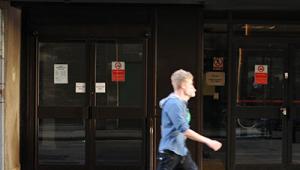The employment rate also hit a historic high of 73.9%. According to the Official of National Statistics’ latest labour market bulletin there were 31.3 million people in work – up more than 500,000 than a year earlier.
The numbers of full-time, part-time and self-employed workers all saw increases, while unemployment fell from 6% in the same period last year to 5.2%.
The number of those ‘economically inactive’ people who are not seeking or available to work also fell, with the inactivity rate at its lowest level since 1990.
Employment minister Priti Patel said “hundreds of thousands of families are going into the festive season with the security and hope for the future that work brings”.
However, the Resolution Foundation think-tank highlighted real wage growth, which appears to be falling back sharply. Real-terms earnings falling back below their pre-crisis trend and there is a decline in pay growth since the previous quarter despite historically low inflation.
Laura Gardiner, senior research and policy analyst at the Resolution Foundation, said that, while Britain’s jobs recovery continues to impress, the figures seem to mark an end to the pay rebound enjoyed throughout 2015, despite historically low inflation.
The Centre for Economic and Business Research on the other hand forecasts continued increases in earnings with the introduction of the National Living Wage next year. It calculates that wages are currently growing at the same rate as that seen between 2000 and 2007.
The Cebr said that, with inflation at basically zero and set to remain low amidst subdued oil prices, rising earnings are translating into increases in living standards.
The International Monetary Fund’s managing director Christine Lagarde recently applauded the UK’s economic recovery so far.
But she warned that a poor productivity record threatened Britain’s economy. Gardiner echoed that point today, branding productivity a “big economic uncertainty”. This could affect pay especially in low-wage sectors such as retail and hospitality and particularly with the introduction of the national living wage next year, she said.
Patel said the introduction of the national living wage would build on the “positive story” told by the ONS figures today. She said this and the introduction of 30 hours of free childcare for working families will ensure the delivery of the high-wage, low-welfare society that “the British people want”.



















